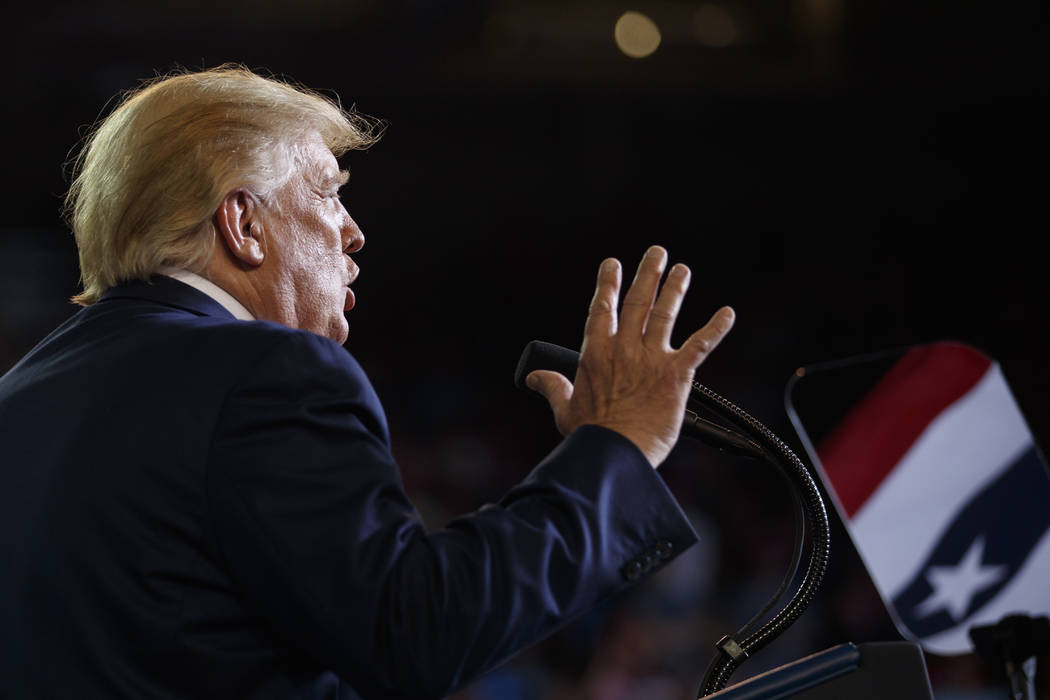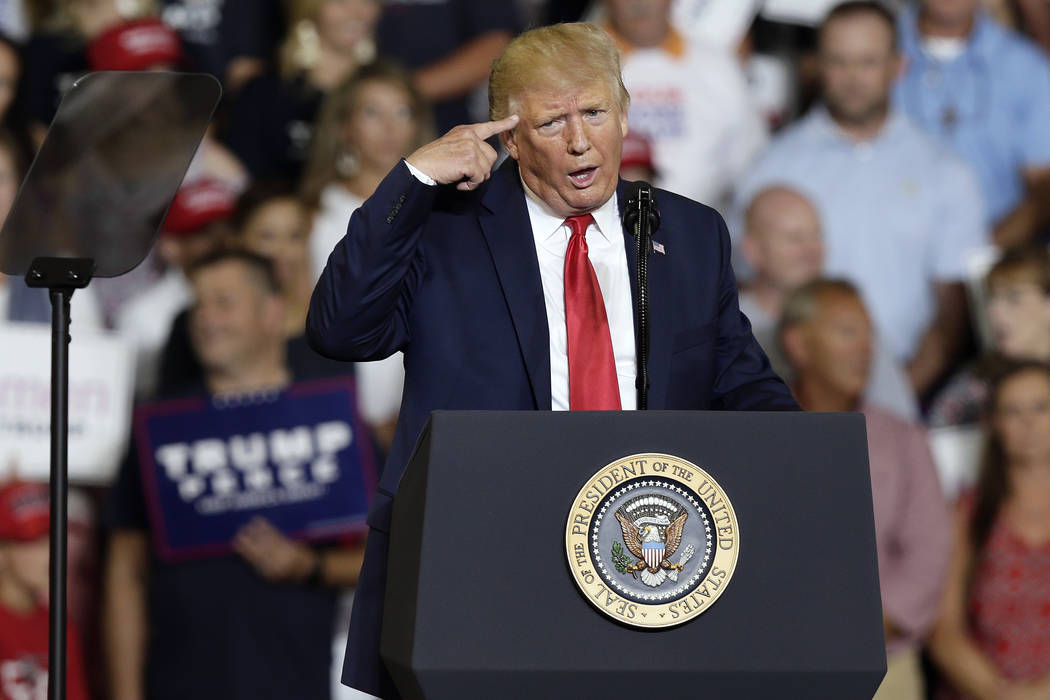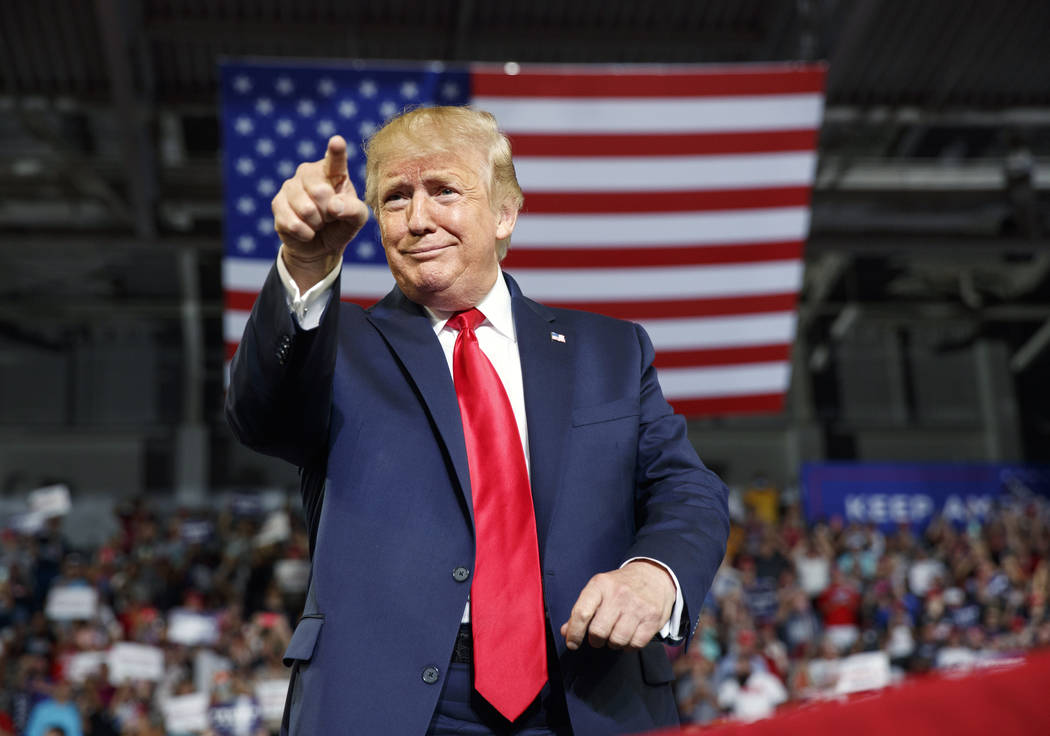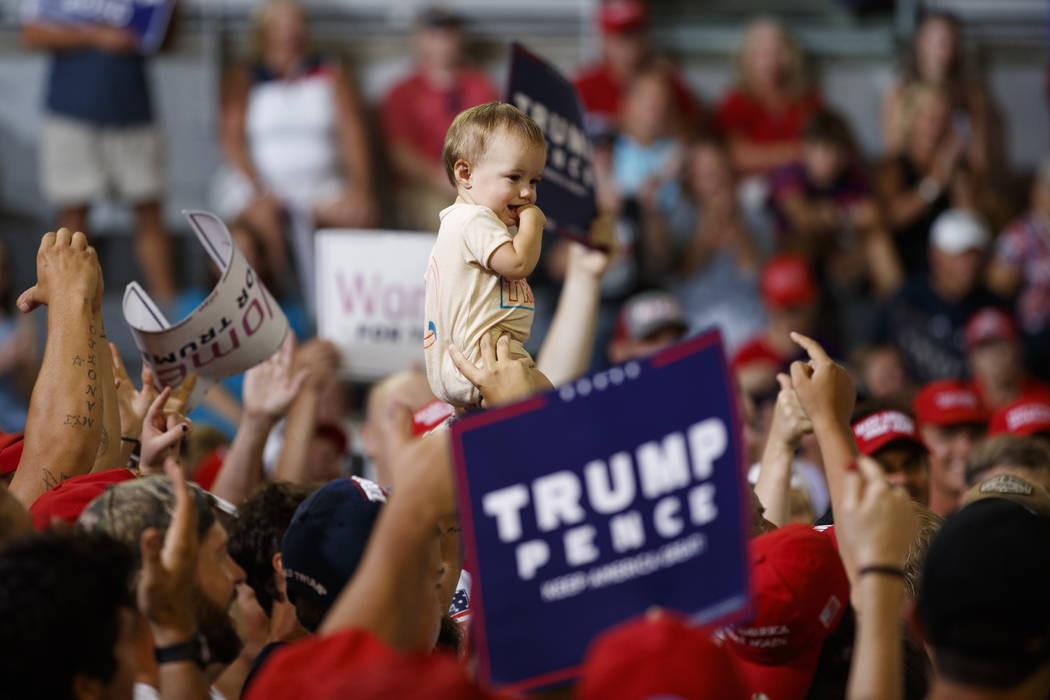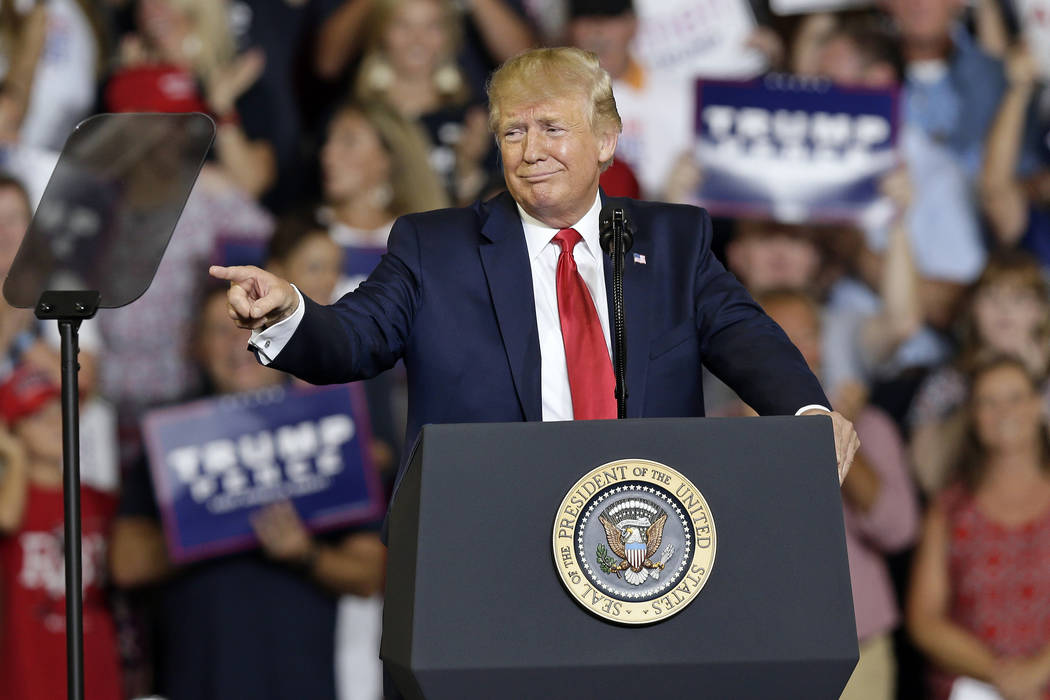Some experts think race issue could make Trump a 2020 winner
NEW YORK — President Donald Trump has placed racial animus at the center of his reelection campaign, and even some of his critics believe it could deliver him a second term.
Every successful modern presidential campaign has been built on the notion of addition, winning over voters beyond core supporters. But Trump has chosen division on the belief that the polarized country he leads will simply choose sides over issues like race.
He intensified his attacks on Wednesday, blasting four young congresswomen of color during a rally in Greenville, North Carolina. The crowd responded by chanting, “Send her back!” echoing Trump’s weekend tweet in which he said the lawmakers, all American citizens, should “go back” to the countries from which they came.
The Republican Party is the Party for ALL Americans. We are the Party of the American Worker, the American Family & the American Dream. This is the proud banner the Republican Party will carry into the Republican National Convention next summer in the great city of Charlotte, NC! pic.twitter.com/T39INp0N8N
— Donald J. Trump (@realDonaldTrump) July 18, 2019
“I do think I am winning the political fight,” Trump declared at the White House. “I think I am winning it by a lot.”
Not since George Wallace’s campaign in 1968 has a presidential candidate — and certainly not an incumbent president — put racial polarization at the center of his call to voters. Though Trump’s comments generated outrage and even a resolution of condemnation in the House, the president and his campaign believe the strategy carries far more benefits than risks.
Sad, but smart politics
“Regardless of whether his tweets are racist or not — I’m not saying they are or not — he is getting the media to make these extremely liberal, socialist, foolish congresswomen the face of the Democratic Party,” said Terry Sullivan, a frequent Trump critic who managed Sen. Marco Rubio’s 2016 Republican presidential campaign. “What he’s doing here is sad, but it’s smart politics.”
Still, there are clear perils to his approach.
Educated suburban voters, especially college-educated women, and minorities in key states like Pennsylvania, Michigan and Wisconsin were already threatening to revolt against the Republican president. Trump believes his inflammatory rhetoric will strengthen his support among the white working class and attract a new group of disaffected voters who fear cultural changes across America.
That approach is likely to face significant headwinds in those three key battleground states that he won by a combined 78,000 votes in 2016. Democrats will be far more aggressive in targeting female and minority voters. Most analysts agree that the potential universe of Democratic-leaning voters is larger, if they turn out. Trump is betting they will not.
Hero-villain expert
The president has proved adroit at crafting a hero-villain narrative and is now focusing on Reps. Alexandria Ocasio-Cortez of New York, Ilhan Omar of Minnesota, Ayanna Pressley of Massachusetts and Rashida Tlaib of Michigan rather than a Democratic presidential candidate. His challenge will be whether he can drive that story line successfully for the next 16 months.
Trump told aides this week that the controversy has cemented the four progressive lawmakers as the faces of the Democratic Party, believing it has boosted his chances at reelection. Far from backing away from the comments, he and his party are now casting the minority Democratic congresswomen as the real racists.
“They are now the top, most visible members of the House Democrats, who are now wedded to this bitterness and hate,” Trump boasted on Twitter.
Energizing force
Trump aides and allies acknowledge that many voters may find the president’s comments objectionable, but for the voters they need in 2020, it may actually be an energizing force.
Those who already believe Trump is a racist and unfit for the presidency won’t vote for him in the first place. For voters in the middle, Trump’s team believes they can be sufficiently scared off the progressive agenda to cast votes for Trump — or at worst, stay home in dispiritedness that neither party speaks to their issues. And for many others who didn’t vote at all in 2016, there is hope that his dramatic presidency, backed by fear of Democrats’ leftward lurch, will persuade them to show up at the ballot box.
Trump’s allies say they think many voters, both Republican and Democratic, are cool to the “woke culture” of 2019, just as they were to the focus on political correctness in 2016.
The Pew Research Center found in May that 8 in 10 Republicans feel too many people are easily offended over language today. About 4 in 10 Democrats said the same.
“The president wasn’t afraid to wade into these culture wars and he’s not afraid to do so again. He’ll stand up for our flag and against open borders. Patriotism will always win,” said Kelly Sadler, a spokeswoman for the pro-Trump super PAC America First Policies. The group plans to spend millions over the coming year on registering likely Trump voters across six swing states.
Veering sharply away from the inclusive tone GOP leaders called for in 2012, groups charged with electing Republicans up and down the ballot in 2020 have embraced Trump’s fiery style and message, which has long relied on demonizing immigrants and minorities.
Polls show response
Some voters may be responding.
The share of Americans who say the country’s openness to people from around the world is “essential to who we are as a nation” is shrinking, according to a new Pew poll.
The poll found that 62% of Americans see openness to others around the world as essential, a number that is down 6 percentage points over the last 10 months. Nearly 6 in 10 Republicans and Republican-leaning independents said that if the United States is too open to people from around the world, “we risk losing our identity as a nation.” Pollsters in both parties said that white working-class voters in particular feel left behind by the Democratic Party’s focus on racial and gender equality. Trump’s hard-line position on race and immigration has alienated many minority voters.
Republican pollsters suggest the president’s real challenge will be in America’s suburbs, where college-educated women veered sharply away from Trump’s party in the 2018 midterms, giving Democrats the House majority.
“He went with racism and divisiveness before 2018 and lost 40 House seats — including in the Midwest,” said Josh Schwerin, senior strategist for Priorities USA, the biggest super PAC in Democratic politics. “He has tried this. The country doesn’t want to be more divided.”
———
Miller reported from Washington. Associated Press writer Hannah Fingerhut contributed to this report from Washington.



